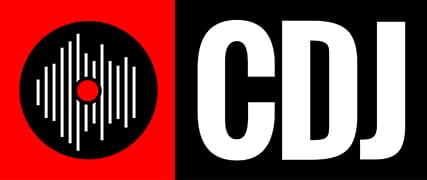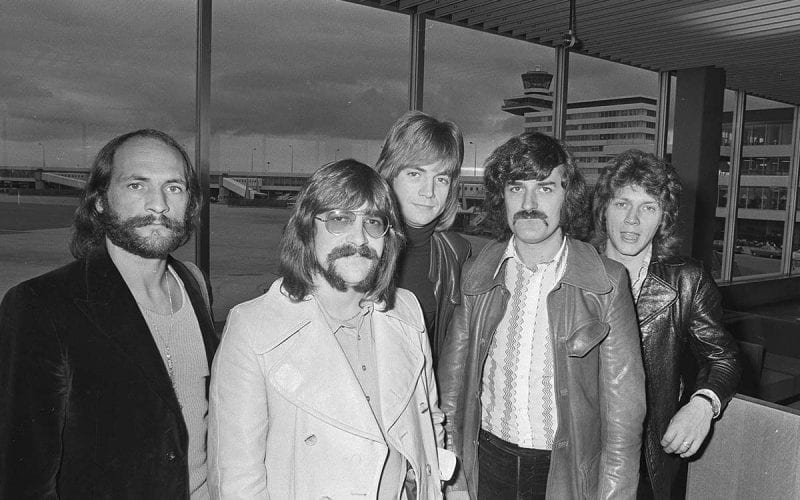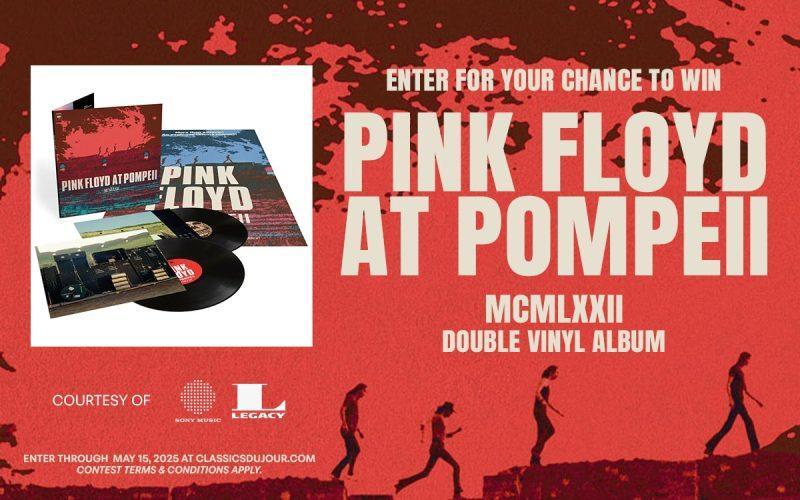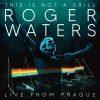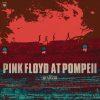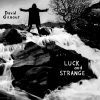
Slaughter namesake Mark Slaughter’s second solo set Halfway There is almost here. The follow-up to the stellar hard rock singer/songwriter/multi-instrumentalist/producer/engineer, etc, etc’s 2015 solo debut Reflections in a Rear View Mirror is slated to arrive on May 26.

Released via EMP Label Group, the US-based label of Megadeth bassist David Ellefson, Halfway There features a full complement of trademark Slaughter songcraft, singing and production, with the added bonus of a lot more of Mark’s guitar playing. Standout tracks include the anthemic first single “Hey You,” “Devoted,” “Reckless,” “Conspiracy,” and the dynamic and emotional title track.
How are you, Mark?
MS: Good. How ya doin’?
Very well, thanks. Thank you for your time today. So, your second solo album Halfway There is almost here! It’s set to be released on May 26. You’ve said that you “take a lot more liberties on the solo side that I probably wouldn’t do when it’s a group effort.” Give me a couple of examples of the liberties you took on this album.
MS: Well, number one, I’m playing more guitar. It’s a lot more of me just hands-on doing things. And it’s also…going into some of the styles that, you know, with Slaughter I’d keep it a little bit closer into what Slaughter’s known for. With this I can kinda stretch out a little bit, and it’s a little bit more personal. There’s a song (“Not There”) on there that I wrote for my mom – she passed away, she had cancer. It’s the last song on the record and the first lyric is “I watched you take your last breath tonight.” And I mean if that doesn’t say pretty much how deep this record can really go – it’s very personal to me.
We’ll certainly get into it deeper as we go along in the conversation, but belated condolences.
MS: Ah, well thanks. That’s just life, you know?
Yes, we’ve all been there. Sadly, both my parents are gone. So, Mark, one of my favorite words is “perspective,” and another is “balance.” You are – almost literally – a one-man band on this album. You kind of hinted at that earlier. You produced, songwriter, engineer, playing more guitar, etc etc. I wonder who – if anyone – is the person that you go to, and ask, “Hey, what do you think of this? How does this sound?” Where do you go to get some perspective?
MS: Well, actually it’s probably an old friend of mine that I grew up with in high school. We’re big rock connoisseurs. He has a big album collection. I go, “Hey, man, whattaya think of this?” Obviously my kids who are 19 and 22. I reach out to them and say, “Whattaya think of that?” But you know, really it comes down to something I can live with, which is, what would I want to hear if I was the music fan just picking up a record. And I tried to write toward what I wanted to hear as well, as opposed to just throwing it together, or quickly just throwing songs down. The other concept was to make this vinyl and to do this as an actual record. You have to condense the sides so that you don’t go too long, because the vinyl in the pressing won’t go well if it’s too long.
Well, as a longtime (vinyl album) collector – I’ve got about five or six thousand pieces of vinyl – and I’m sure you do as well…
MS: Yeah, well not that deep, but I think that really where it is is that that’s where it all started for me as a young kid. You know I got those records and I’d play them until I almost wore the records out. I think there’s something about that, as I’ve seen my youngest kid really getting into vinyl, is that there’s some type of a discovery that’s a personal thing. It happens in vinyl between an artist (and fan) in vinyl as opposed to a download.
Absolutely, man. So, I was gonna ask you this question a little later in the conversation, but I think you gave me a great segue to it. So, before we move forward, let me take you back to where it all began. Did you have the proverbial “Beatles of Ed Sullivan” moment? Looking back now, was there a song you heard, or an album you listened to, or a concert you went to, where you can say, that was the moment that you said to yourself, “I think I wanna do that!” Was there one of those moments for you?
MS: When I was really, really, really young, obviously The Beatles were still around and doing their thing, and rock and roll radio in the 70s was still happening. Growing up in that era and hearing Grand Funk and all that stuff left an impression on me. I didn’t exactly say, here’s the moment where I’m gonna do this, but it was a natural progression. I love music! I listened to the radio as I fell asleep as a very young kid. That’s where I found it (music) before I bought my first 45, which I believe was “Little Willy” by The Sweet. You know I’ve loved music my whole lifetime and I think it’s just something that’s always spoken to me. I always knew that I loved music and always wanted to be a part of it. I just didn’t know I would wind up doing it a lifetime.
Speaking of singles, let’s jump back to the record. The first single “Hey You” was released April 24. There’s a line in the song that many of us have heard many times before, which is, “The cost of freedom isn’t free.” In what context are you using it?
MS: To me, I think it’s the sacrifices of many to have the freedoms in this country. I was born on the Fourth of July. There’s this patriotic undertone that always certainly surrounds me. You know like “Never Givin’ Up” which I had on the last record (Reflections in a Rear View Mirror) was about supporting those who support freedom. And it’s not just the American way. It’s the way of people having the freedom of speech and freedom of religion and freedom to do whatever they wanna do. It costs lives and to speak your mind and to say that is also, um, how can I put it, is also chastised for having a difference of opinion. To me, I just think that it’s all about that. You just have to speak your mind and know that it’s not for free. Somebody fought or died for you to be able to say that. And that’s how I look at it.
Unfortunately, not having had the pleasure of listening to the entire album, would you say that, thematically, “Hey You” is sort of the anchor of the album?
MS: No, I think it’s the anthem of the record. It’s like one of those things you’d see or hear at a concert that’s really just that butt-kicking, get in your car and drive and watch yourself cuz you might get a speeding ticket, cuz this is just good old rock and roll that pushes you there. The record itself goes really deep. In some ways it goes really dark, and in some ways, it’s as refreshing as sunshine with your windows down in your car and a little wind in your hair. There’s that balance. Life is that balance, and as a writer I try to make it to where every emotion in any record I ever do is somehow included in that record.
Mark, if we were on video right now you’d see me grinning from ear-to-ear because the end of my question on “Hey You,” as I’m looking at my notes here, I was gonna say, is it the anchor of the album, or, is it just the anthemic first single (laughs)?
MS: Well, there you go! Look, “Up All Night” (from 1990’s Stick It To Ya album) was certainly that for us back in the day. Being the writer of that music…I’m not going too far away from where I was with that Slaughter stuff. If you like that, it’s still there, but this is also many years later and being able to record in the way that I record gives me a lot of artistic freedom, to, for instance, add an orchestra or add certain things to a song that otherwise would almost be an impossibility because you couldn’t afford an orchestra or it just wasn’t feasible. Using technology I was able to really do some wonderful things. You almost hear the pictures come off the music, as opposed to it just being music.
Speaking of pictures; paint the picture for me. Tell me about the title track.
MS: “Halfway There” is halfway through life. The beginning verse of “Halfway There” is talking about when I was a young child and how it was with my mother and myself. And then it talks about her passing and it goes, “Here I go, I’m halfway there.” I’m halfway through life and I’m still going. And then it talks about having children, and then the children going away – halfway there. And then talking about when I’m gone, and basically from the other side I’m saying to my kids, “There you go, you’re halfway there.” It’s just that constant circle of life that is a beautiful thing, but it’s a fact. This is how it works. So, I’m always striving to write the best songs that I can write – first and foremost. And then in between that, to take people on that journey with me.
Amen. So, Mark, pun fully intended here: looking in the rearview mirror for a second, how is this new album different and/or similar to the first solo album, Reflections in a Rear View Mirror?
MS: I enjoyed making the last record, and there were a lot of cool times and a lot of songs on there that I’m really proud of, but with this one, I just think there’s a lot of truth in this record; there’s a lot of emotions. I’ve played a couple of the tracks off this (album) and I’ve seen people just grin from ear-to-ear, and I’ve also seen people literally wipe tears off their face. Music does that! But when it comes off the record that you did and you’re touching people that way, then I’m doing something right. Music is that. It is emotion, it’s love, it’s sharing that. And I really do feel that my heart and soul went off into this record and I do think that people will feel it.
Again, being an old school vinyl guy, I’m curious about the album art. Mr. Sam Shearan of Rob Zombie, Iron Maiden and Kiss fame did the artwork. Tell me a little bit about it.
MS: Well, the concept is, you know, halfway there – you’re halfway in between someplace. The concept is halfway between good and evil. We all struggle and we all fight to do what’s right. We all fight to have clarity and have a pure mind, and then there’s always this other side that’s always creeping in that you’re always in a fight with. That’s just how a human is. And that struggle is what makes you strong.
The album will be released on a record label (EMP Label Group) run by a guy who certainly knows a thing or two about great records – Megadeth bassist David Ellefson. Why did you feel Dave’s label would be the best vehicle to get this album out to the masses?
MS: I think it’s really the passion. I’ve known Dave for several decades, and first off it’s a friendship, and second of all it’s a musical admiration that we both have for each other. I’d rather do it that way and work with people that I know, than somebody who’s just got a deep pocket and wants to throw money at me.
Cool. Finally, I pulled another quote from you regarding your songwriting in which you said that songs are in your head and you just “exorcise the demons.” You said “An artist makes art” and you “still have to make the art.” Do you think you’ll be writing and rockin’ ‘til you drop?
MS: That’s correct! It’s what I do. It is one of those things for me. Number one it’s a love, and number two it’s a necessity. I think it’s part of who I am and what I continue to be. Somebody will come up to me at a show and go, “This song saved my life” or “This song really moved me at this point when I was dealing with this.” That’s what music – not my music – but other people’s music has done for me. So it’s just kind of contributing to the pool of rock and roll. I’m not gonna reinvent it, but it’s sure nice to keep the water in the pool so we can all go for a swim, you know (laughs).
(Laughs) Nice! Yeah, I got it. Very well put. Alright, Mark, I appreciate your time. It’s great to talk to you. Good luck on the record. Safe travels on the tour.
MS: Alright, thank you much. Bye bye.
